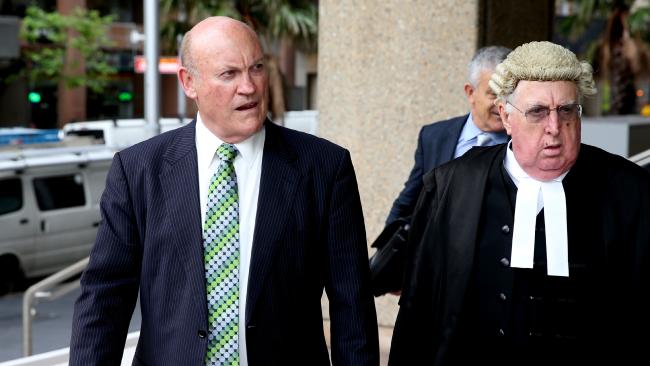
The criminal prosecution of former NSW politician Ian Macdonald is being partly organised by the Independent Commission Against Corruption, the same organisation accused of suppressing exculpatory evidence that favours Mr Macdonald.
The involvement of ICAC in organising people to give evidence against Mr Macdonald has raised concerns about a potential conflict of interest and damage to the principle that prosecutions should be conducted independently, according to Mr Macdonald’s solicitor, Nick Dan.
“It does raise a potential conflict issue as well as whether they have the jurisdiction and power to act” after the Director of Public Prosecutions has taken control of a prosecution, Mr Dan said.
“The idea was to allow the DPP to cast fresh eyes and it goes contrary to that to keep (ICAC) involved in the process.’’
Mr Macdonald, a former mining minister, was the subject of an adverse ICAC report and has been charged with misconduct in public office over the allocation of mining exploration licences.
He has called for a judicial inquiry after obtaining confidential transcripts of secret ICAC hearings in which witnesses, including federal Labor frontbencher Anthony Albanese, gave evidence in his favour that was suppressed by ICAC.
The commission’s involvement in his criminal prosecution has come to light after ICAC officer Paul Grainger served a subpoena on businessman Andrew Poole and informed him he was a potential witness for the prosecution against Mr Macdonald.
Mr Poole, who was exonerated by the DPP and the NSW Supreme Court after an adverse report by ICAC, said Mr Grainger explained his involvement by saying: “We do admin work for the DPP.’’
The subpoena that was served on Mr Poole was drawn up by the DPP but is addressed to Mr Poole “c/- Paul Grainger, ICAC”.
This comes soon after the NSW government secured parliamentary approval last month for legislation that gives ICAC the authority to initiate criminal prosecutions on the understanding that those prosecutions are then taken over by the Director of Public Prosecutions.
“After the prosecution is under way, the DPP will take over the matter,” NSW Attorney-General Gabrielle Upton told parliament. When DPP Lloyd Babb SC was asked yesterday whether he had arrangements in place with ICAC to address the appearance or reality of a conflict of interest, he replied through a spokeswoman that he had no comment.
ICAC did not respond to questions.
In separate proceedings, Mr Grainger is one of the ICAC officers who has been accused of misfeasance in public office over a raid on offices occupied by the family of former politician Eddie Obeid and his family. Mr Grainger was also involved in re-enacting a raid on the home of prosecutor Margaret Cunneen SC as well as an earlier raid that was carried out without a search warrant.
ICAC Inspector David Levine has described the decision of ICAC Commissioner Megan Latham to authorise the first unlawful raid as “an abuse of power and serious maladministration” — a finding Ms Latham rejects.
Chris Merritt, The Australian,
(WTF) Used with permission.
